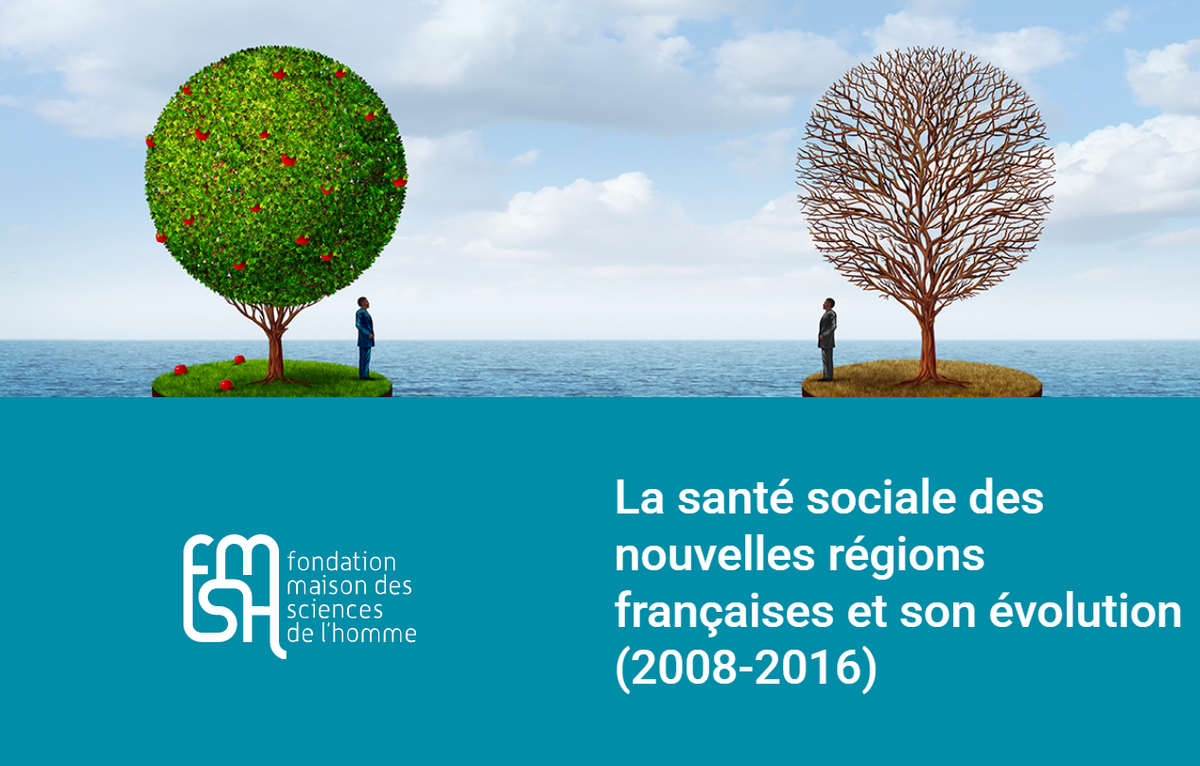The social health of the new French regions and its evolution 2008-2016

In 2008, we constructed a multidimensional indicator that was intended to calculate the social health of the French regions in 2004. The product of much collective deliberation, this indicator was selected by the Association of the French Regions’commission on sustainable development and the environment for inclusion in 2012, and as one of the key indicators in the first draft of the Eva Sas Act in 2014.
The present article updates this indicator by enriching and expanding it in order to measure the evolution of social health over time and the level attained at the end of the 2010s. It takes the reconfiguration of the “new” French regions as the basis for reconstructing statistical series. It shows that some regions (Brittany, Pays de la Loire) have a very strong social health dynamic while others, particularly the Hauts-de-France, are lagging far behind. It also sets this social health alongside an exploratory multidimensional measure of territorial environmental performance, mobilizing new tools of cartography.

The authors
Florence Jany-Catrice is full professor at the University of Lille, member of the Research Center Clersé (UMR 8019), and Richard B. Fisher Member, School of Social Science (2020-21), Institute for Advanced Study, Princeton. She works on the issues of the evaluation of public policies, on critics of the measurement of growth and inflation, and on new indicators of sustainability. She has published numerous articles (see for instance : “the French regions and their social health”, in Social Indicators Research, Volume 93, Number 2, pp. 377-391 (2009), and books among which : New Indicators of Wellbeing and development, with Jean Gadrey (2006) and A political economy of the measurement of inflation (2020), both edited by Palgrave McMillan.
Amélie Lefebvre-Chombart is a Post-doctoral fellow at the chaire in social and solidarity economy of the Hauts de France Region. She works on the contribution of social commons to the territory. She has a PhD in geography and is an agricultural engineer. Her doctoral thesis focused on social and solidarity initiatives in rural areas. She also published several articles among which "At the sources of the construction of territories: spatialized social and solidarity initiatives", Géocarrefour, 92/4 | 2018, and " Quel horizon des communs sociaux pour l’Économie Sociale et Solidaire?"(with P. Robert, F. Jany-Catrice, L. Gardin, C. Mahieu) in Entreprise & société, 2020 - 2, n°8, p. 49-70.
The text
This Working Paper was written within the framework of research on the measurement of social health at the territorial level, carried out within the Ecology, Work and Employment chair of which Florence Jany-Catrice is the Chair holder.





